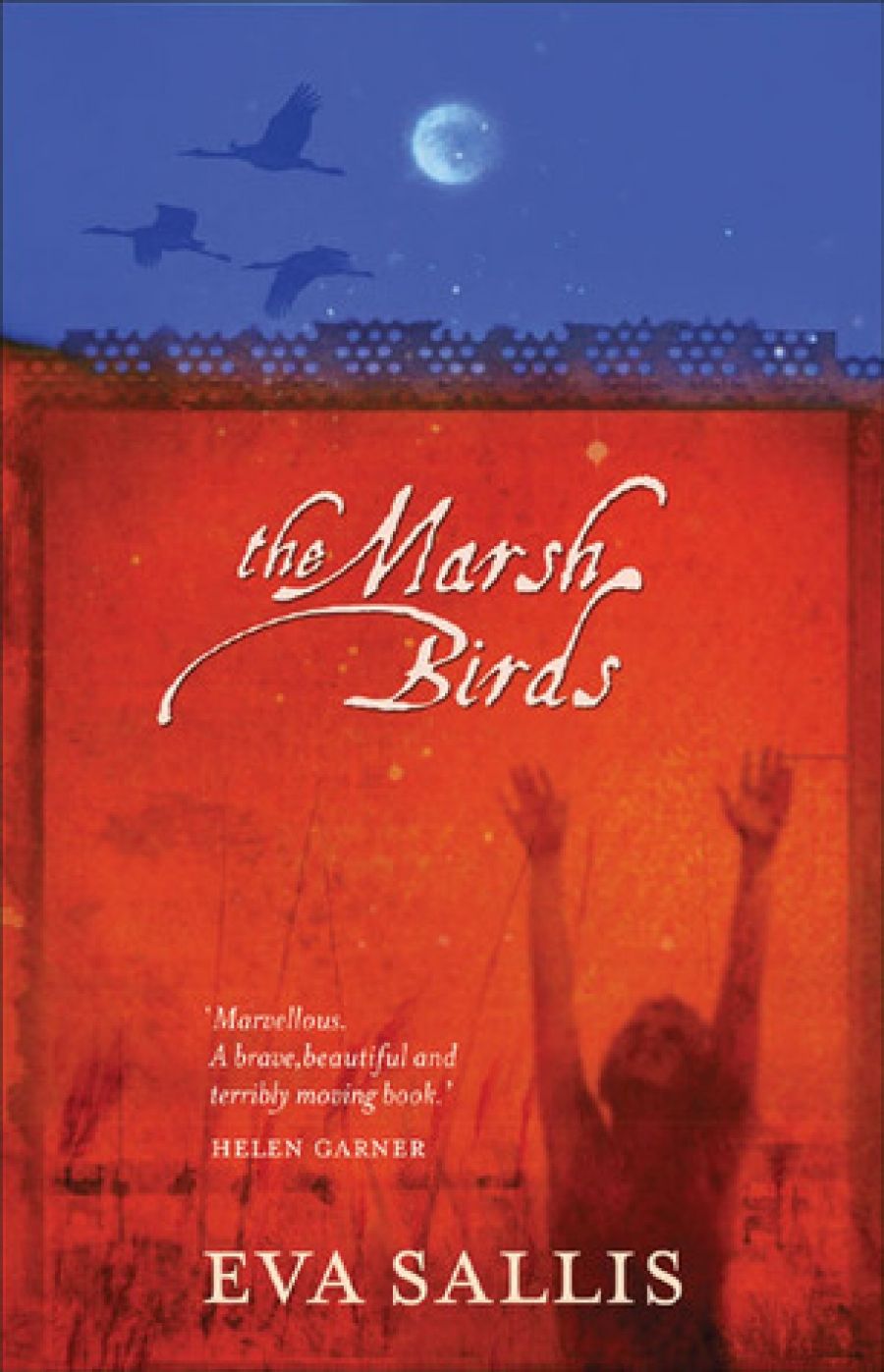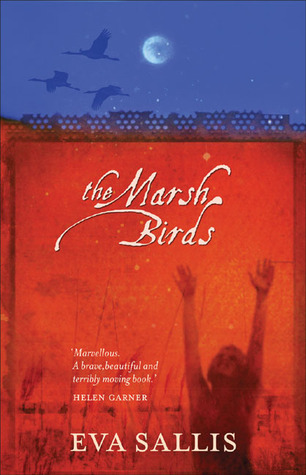
- Free Article: No
- Contents Category: Fiction
- Review Article: Yes
- Article Title: Dhurgham's dream
- Online Only: No
- Custom Highlight Text:
The Marsh Birds, by Eva Sallis, is a bleak but poignant account of one boy’s consuming loss and bewilderment as war and internal political tension separate him from his family, his home and his country. It is the story of parallel journeys in the life of Dhurgham Mohammad As-Samarra’i as he grows to manhood in an unforgiving world and searches for love and acceptance. Throughout this pilgrimage, Sallis examines concepts of anguish and hopelessness, social hostility and exclusion, fear of difference and the collision of cultures. In the tradition of Sallis’s City of Sea Lions (2002) and Mahjar (2003), themes of self-discovery, escape, constraint, and the obstacles to freedom and solace in other societies are revisited.
- Book 1 Title: The Marsh Birds
- Book 1 Biblio: Allen & Unwin, $21.95 pb, 250 pp
- Book 1 Cover Small (400 x 600):

- Book 1 Cover (800 x 1200):

Dhurgham, an ingenuous twelve-year-old Iraqi boy from a professional, middle-class household in Baghdad, has grown up in an overly protected environment, watched over by his devoted sister, Nura. With a swiftness that is breathtaking, the life he has known since childhood changes forever. As Dhurgham’s family attempts to escape to Syria, fearful of punishment for affiliations or conduct not stated in the book, his father’s final instruction, should they lose each other, is to ‘meet together at the great Mosque’. The shock of suddenly finding himself alone on the streets of Damascus, with the family’s fortune sewn into the lining of his coat, immobilises the boy. Dhurgham waits for almost three months, but no one arrives. He becomes prey to the interest and affection of a man who entices him away from his vigil. What follows is a strange seduction at the hands of Mr Hosni – a lover of young boys – and, finally, abandonment, detention and deliverance. Already burdened by the destruction of all that is familiar to him, Dhurgham suffers shame, disgust and self-loathing.
Exploited and ultimately discarded in an alien universe, Dhurgham’s voyage unfolds a narrative of the human migratory condition in contrast to the birds of passage that find refuge without boundaries in the marshy sanctuaries around the world. The title of the book reflects the dream of liberty that he is seeking, one that is to elude him. After two years, Mr Hosni, afraid of the consequences of his actions, arranges Dhurgham’s passage as an illegal immigrant to Australia.
Rising panic consumes Dhurgham the further he journeys from Iraq. He is left with shadowy images of his parents and sister as he struggles to remember details of their faces, conversations, childhood experiences and life in his own country. Feelings of terror at the prospect of a future without love and protection grow in strength until a terrible submission makes it impossible for him to travel any further.
The story progresses, often mysteriously and in an illusory fashion, from country to country, thought to thought and mood to mood. After arriving on a leaky boat from Indonesia, he is detained in Australia for a number of years and endures condemnation. Ultimately, his claim for refugee status is denied. His final hiatus in New Zealand offers some relief, but even this is dulled by his own perception that cultural distinctions are too great to overcome. The driving force to belong withers and dies in feelings of hatred, anger and disappointment.
Sallis is as fervent in her belief that Australia’s policy on refugees is unconscionable as the intensity of the central character’s impassioned search for somewhere that will accept him. If there is a blemish in this story, it lies in the over-emphasis and repetitive expression of the former view.
The Marsh Birds is a parable, a morality tale. It proffers a practised course between the real and imagined, the good and bad, the possible and impossible. One is not entirely sure what part of the content is mythical, but the writer has summoned forth with ardour to shape our thinking to believe that all of it is true. It does deliver an evocative image of a ruined life in the misfortune and isolation suffered by Dhurgham and in the affirmation that he is just another global exile whom nobody wants; it cannot answer questions of fault or blame. Tragically, human displacement is an international dilemma, with innate pitfalls and few satisfactory outcomes.
The language and structure of the novel should appeal to younger readers. An annoying feature is that Dhurgham’s predicament follows a most hollow arrangement from his well-connected father to simply ‘meet at the great Mosque’, without an alternative strategy for his young son should their escape plans fail. The boy exists without a clearly defined identity, dependent on a sister we never get to know, a former way of living we can only guess at, and a family life from which he seems detached. Dhurgham’s own words, ‘If I were a bird they could not imprison me’, formalises the anti-detention focus of the book.
The Marsh Birds’ metaphor of freedom and flight, liberty without convention, and movement without barriers, advocates the promotion of unorthodoxy and hope rather than bureaucracy and despair. Dhurgham’s odyssey does act to remind the reader of the impasse of millions of stateless, lost and desperate individuals around the globe.


Comments powered by CComment